Trump’s Rage at Reporters Echoes a Stressed TV Dad Who Can’t Pay the Bills
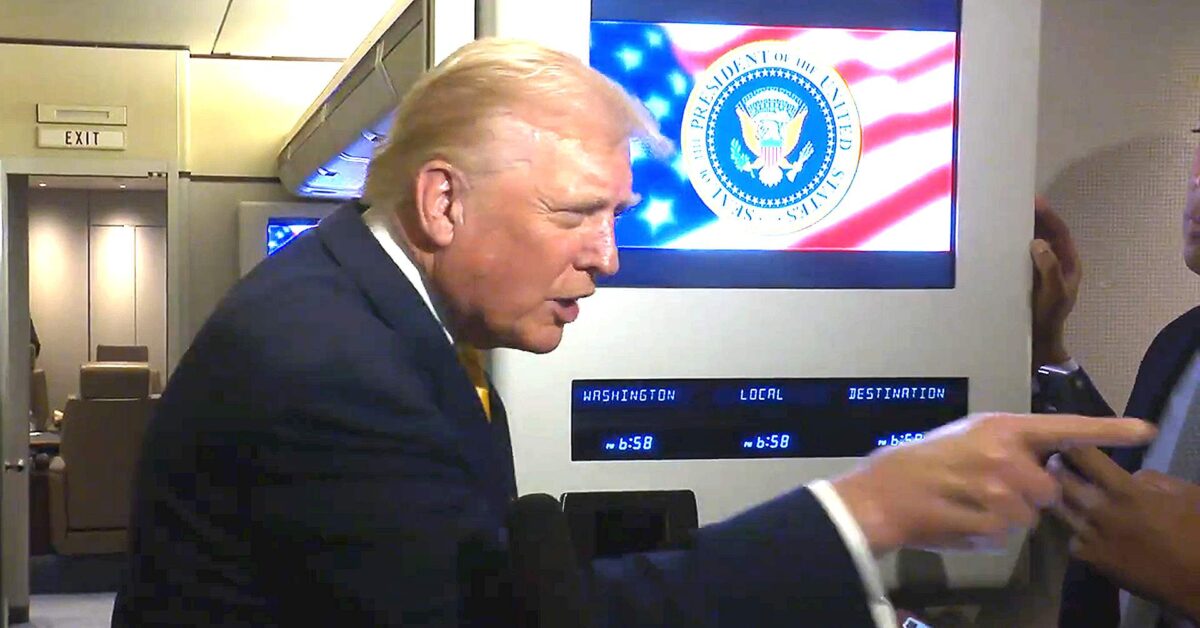
There’s a theory in behavioral psychology that the surest way to understand someone isn’t by listening to what they say, but by watching what they cannot endure. In politics, questions are brief, democratic intrusions that power cannot fully control. A president can deflect them or resent them, but he cannot prevent them. Not in a functioning republic.
Which is why President Donald Trump’s recent outbursts—snapping “Quiet! Piggy!” at Bloomberg reporter Catherine Lucey aboard Air Force One, then calling ABC’s Mary Bruce a “terrible person” in the Oval Office—ended up revealing more than he meant to. The questions were entirely predictable and reasonable, which made the eruptions seem impossibly worse. And that mismatch in tone is the story.
Trump’s volatility with the press has always been theater—until now. His relationship with the media has never been merely antagonistic; it has been symbiotic to the point of mutual profitability. He insults reporters; they cover the spectacle; he offers charm, grievance, and controlled chaos that reliably boosts ratings and clicks. Like an abusive father at the dinner table, he alternates between warmth and humiliation—rewarding the obedient with access and embarrassing the defiant for sport.
Anyone who remembers the television fathers of the late ’70s and early ’80s—men hollowed out by stagflation, tightening belts and tempers in equal measure—will recognize the trope. The stressed-out patriarch who can’t control the world outside his front door, so he bullies the people inside it. That character wasn’t written as a villain; he was written as a man crumbling under pressure.
Trump taps into that same uneasy cadence now: not the swagger of someone in command, but the short fuse of a man who feels events pressing in and chooses the bluntest outlet for his anxiety.
The broader economic backdrop only deepens the tension. Amid stubborn inflation and rising grocery bills, the White House quietly blinked — issuing an executive order exempting over 100 food items from tariffs after internal polling showed voters already souring.
That move wasn’t a sign of control—it was a retreat. When families feel the pinch at the checkout line, a leader’s bluster over “economic strength” falls flat. For a president largely insulated from tough questions, the visible signs of pressure ripple outward, turning raw policy failures into personal strain—and giving his outbursts at the press the tone of someone trying not just to fight his critics, but to hide his fear of being found out.
Reporters have long understood the transaction: endure the mood swings, get the interview, feed the machine. And for years, Trump understood it too. But this version of Trump is less about performance and looks like an uncontrolled reaction.
The questions he bristled at were not surprise attacks. Any president dealing with the Epstein files—an issue with real legal and political stakes—should expect scrutiny. Yet Trump behaved as if blindsided, as though encountering a form of questioning he hadn’t faced in ages.
And maybe he hasn’t.
The answer lies not in the reporters but in the media bubble he’s built to keep them out. Over time, he has surrounded himself with friendly interviewers, obliging podcasters, and cable hosts who know the price of staying close is never making him uncomfortable. Pro-Trump toadies now get significant airtime in the briefing room and Oval Office gaggles.
These are not reporters. They are emotional support animals for the president’s ego. They let him dictate the rhythm, the topics, the tone. Tough questions evaporate on contact. Accountability never enters the room.
A presidency—like an athlete—needs resistance training. You need the pushback of skeptical inquiry to stay sharp. You need the occasional hard pitch to remember how to hit. Trump opted out of that regimen long ago. So when a real question finally comes his way, he doesn’t parry it — he flinches.
Trump is deconditioned for tough questions, like a slugger who’s spent the season swinging at softballs and is suddenly unnerved by major league pitching.
Which is why the predictable now feels to him like provocation. A basic question about transparency registers as an accusation. A routine follow-up feels like betrayal. He isn’t furious because the questions are unfair; he’s furious because they’re unfamiliar.
A president who expects applause will always hear inquiry as insult.
Trump has long cast himself as hardened by combat, the only politician tough enough to withstand the press. But the bravado has only gotten louder. And the instincts underneath? Those have atrophied. He mistakes the quiet of friendly interviews for mastery, and the cocoon of affirmation for proof that he still knows how to navigate pressure.
This fragility matters because the questions still need to be answered. Why delay the release of the files? What did he know? Why not let the public see them now? These are not partisan provocations; they are the foundational questions any democracy must ask of those who wield power. Dodging them doesn’t make them disappear—it only underscores their importance.
A presidency is defined not by the questions a leader prefers, but by the ones he cannot avoid. Every occupant of the Oval Office eventually faces inquiries that are uncomfortable, insistent, and necessary. Some meet them with candor—others with evasion. Trump, in this moment, is doing something different: trying to delegitimize not just journalism but the act of asking any questions.
But the questions remain, as they always do. And the more he lashes out, the clearer the picture becomes.
This is not a president in control of his circumstances. This is a president who has mistaken insulation for control. And his reactions now expose something more fundamental: he is no longer prepared for the most basic test of democratic leadership—being asked to explain himself.
This is an opinion piece. The views expressed in this article are those of just the author.
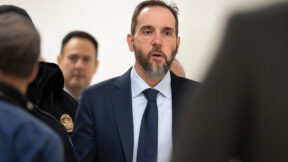
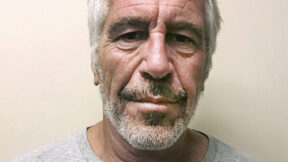
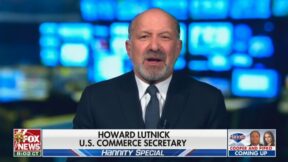
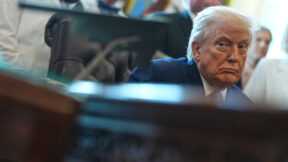

Comments
↓ Scroll down for comments ↓